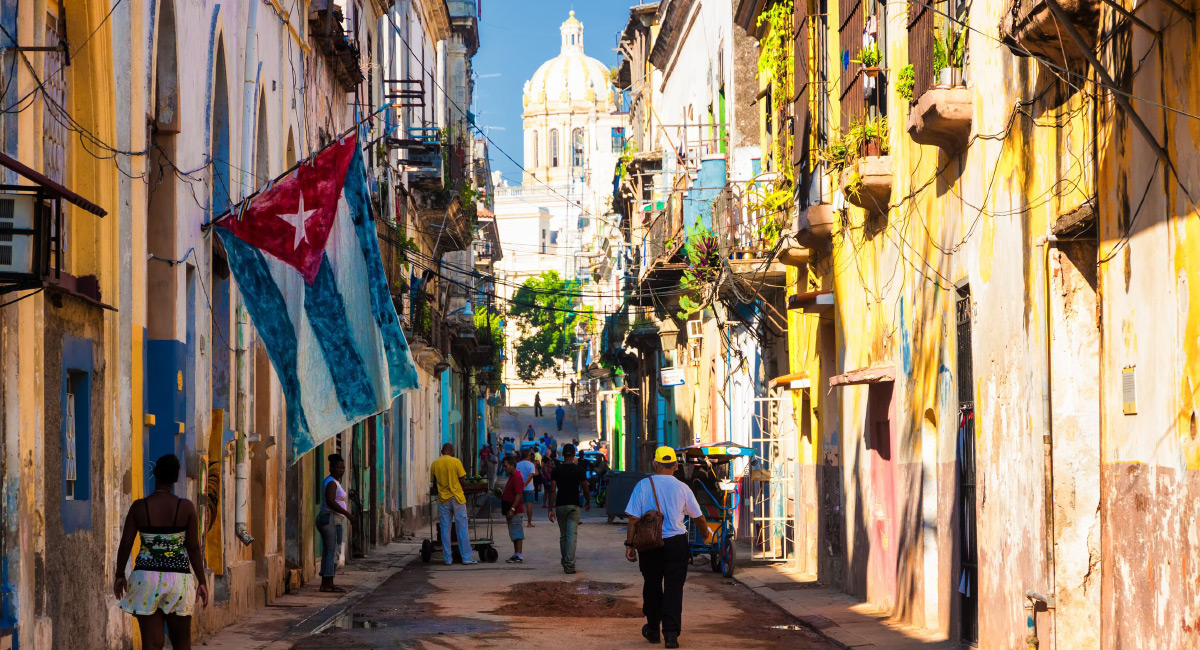There’s nothing like a pandemic to facilitate the work of a totalitarian state. Any form of political persecution can be justified as a necessary measure adopted to preserve the life and health of potential COVID-19 victims—and any form of political dissent can be construed as antisocial conduct threatening to others.
Cuba provides a perfect example. The island, nominally governed by Miguel Diaz-Canel but still firmly controlled by octogenarian Raul Castro, is receiving little international attention these days, given the pandemic. Daily assaults on dissidents, activists, and critics go unnoticed, and the numerous protests around the country, small but significant, rarely make the news abroad.
Between July and November, Human Rights Watch gathered extensive information on dozens of arbitrary arrests in the socialist paradise about 100 miles south of Florida. Based on interviews, documents, and other material, the information indicates that many of those detained have been sentenced to prison terms, while others are still being held without trial or were “just” intimidated, threatened, or fined.
A common theme is that the people were arrested for violating COVID-19 health and safety rules, such as not wearing masks correctly. That was the case with human rights activist Keilylli de la Mora Valle, who was smoking a cigarette when police detained her. Following her arrest, she reportedly tried to commit suicide in prison, according to people close to her. Juan Miguel Pupo Arias, another critic of the regime, was jailed for lowering his mask to eat. He was originally sentenced to six months in prison, but just prior to his release, his sentence was extended for another four years for defying authorities. The prosecutors made sure to include in the new charges the fact that he “expresses negative opinions about the revolutionary process.”
Numerous pandemic-related decrees, which make it virtually impossible to stay within the law because of the obsessively punctilious regulations, give the police convenient excuses for harassing or arresting alleged violators.
In theory, punishment for such violations can range from a fine (twice the minimum wage) to nine months in prison. But in practice, almost anything short of total submission to security agents can be considered “disobedience” or “defiance” (“desacato” is the almighty word in Spanish) and become the pretext for a longer sentence.
In some cases, the health norms aren’t even invoked. That was the case of dissident journalist Reinaldo Escobar, the husband of the prominent Cuban blogger Yoani Sanchez, who was recently detained for no specific reason.
In other instances, state authorities have used any small incident to accuse critics of violating the peace, as in the case of Yandier Garcia Labrada from the Christian Liberation Movement, the most important nongovernmental organization in Cuba, whose founder, Oswaldo Paya, died in a 2012 car “accident” many believe to have been arranged by the government to get rid of its most prominent critic.
Labrada was arrested on Oct. 6 after complaining about the inefficiency of the government’s food distribution system as he waited in line to buy groceries in the town of Manati, where he lived. He reportedly is being held at “El Tipico,” the provincial prison in Las Tunas.
The man who succeeded Paya as the Christian Liberation Movement’s leader, Eduardo Cardet, is on parole after serving three years in prison, but Cardet is constantly being threatened with further incarceration. Another leader, Rosa Maria Rodriguez, recently announced that her grandson Rosuan Duran Melchor had been sentenced to six years in prison for mixing with “antisocial elements.”
And so it goes in Cuba. Dissent isn’t tolerated, and any utterance or activity that displeases authorities can land one in jail.
Small protests are routine around the island nowadays, which partly may explain the heavy-handedness with which Cuban authorities have been reacting under the cloak of the pandemic.
When the Biden administration reexamines America’s policy toward Cuba, it is Cuba’s virulent political pandemic that should drive its policy, not Cuban American voting habits.













